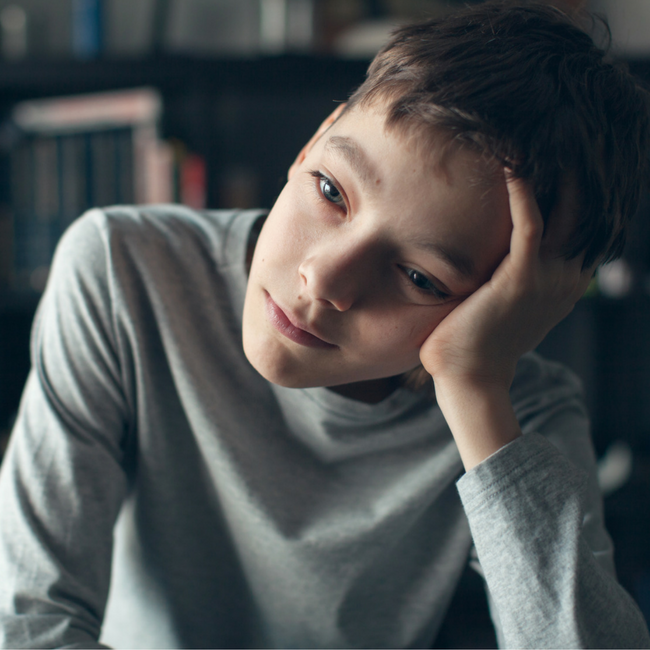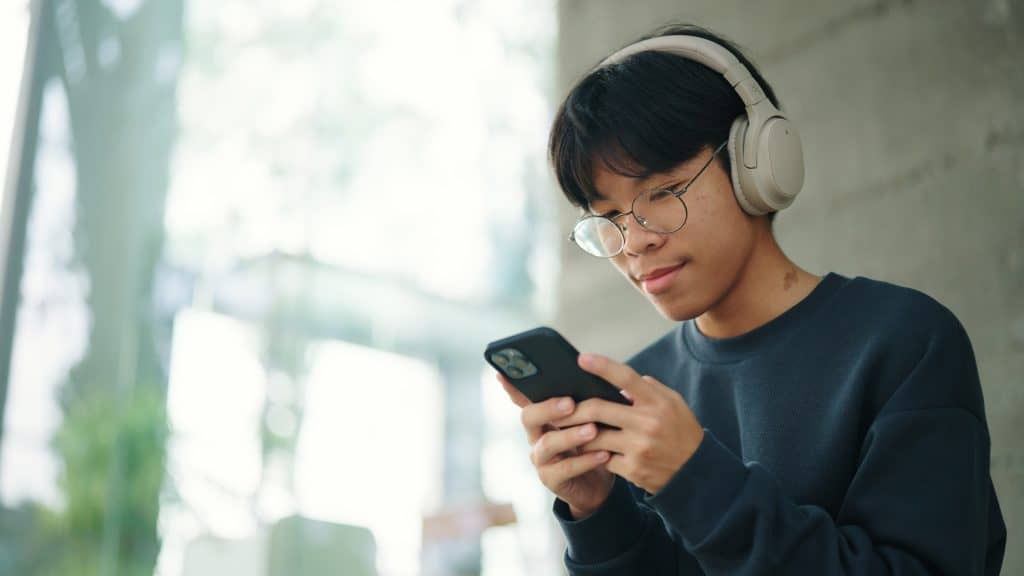The first time I found out that my oldest child, Eric, was looking at pornography, I was absolutely shocked. I felt betrayed, angry, and overwhelmed. But perhaps my greatest emotion was shame. (Read our story in the article, “My Worst Mommy Moment and How It Totally Changed My Parenting.”)
How could this have happened in my Christian home? I wanted to pretend and ignore and hide from this new truth. I sure as heck didn’t want anyone knowing this. It seemed like all I could think about was my family’s reputation.
Well, God sure has a sense of humor, because now my son and I actually tell people our story. Why? Because we found some real ways to help protect our home from the harmful chains of pornography.
It all starts with creating an emotionally safe environment, where your child feels safe opening up to you. Here are four steps we’ve found to help open up your child’s heart.
Set Up a Time to Talk
Thoughts from Lori: Be intentional. Let your child know that you want to talk with them. Let them know the time and the place. Choose a private setting. Because talking about sexual issues can be uncomfortable, I also add something fun into the mix.
It looks something like this,“Honey, I’d like to talk to you today about some bigger issues. How does that sound?”
My child will usually ask what it’s about, and I’ll smile and say, “Sex, porn, and stuff like that.”
I let them know the time and place. “Let’s talk in my room at four. I’ll find you at that time. Oh, and I’ll bring you a malt from Sonic. What’s your favorite flavor?”
I have eight children–we don’t do a lot of “speciality” foods or drinks. So when I buy them a malt or a special iced coffee, they feel special and it opens their heart in a bigger way.
Thoughts from Eric: Parents, the earlier you start this conversation, the easier it will be. The best case scenario is before first exposure. However, if your child has just started looking at porn, the same mindset still applies. The earlier you talk, the easier and better this will be. He or she will most likely feel deep guilt and will actually welcome your help (if you comfort them, rather than shame them–more on this momentarily).
If your child has been a long-time consumer of porn, they might be more edgy. That’s okay. An addict has a love/hate relationship with pornography. “I know it’s wrong, but I keep going back. I like it.” There’s a very good chance it’s not something they are fully committed towards giving up. I didn’t think my parents would understand it. Mom surprised me. She caught on more than I ever thought she’d be able to.
Related: How to React the First Time Your Child Admits Watching Porn
Give Them Love
Thoughts from Lori: When you sit down with your child, tell them first how much you love them and how proud you are of them. Yes, proud. Tell your child that there is nothing they could or would do that would take away your love for them.
Thoughts from Eric: Know that they are scared. They feel deep shame. But you know what? Shame cannot survive when met with unconditional love and acceptance. It was the best gift my mom and dad gave me. They knew my deepest, darkest secret and they got to the place where they could look at me and say, “We love you and we are here for you.” That was my first major turning point.
Empathize
Thoughts from Lori: Next, be real. If you have had your own struggles, make sure you let your child know that in an age-appropriate way. If your child is younger than 14, you don’t need to say much except, “I get your pain. I’ve had my own struggles.”
If they are older, they will appreciate knowing that you know their pain. “I get what you are feeling because believe it or not, I struggled with some similar issues. I am not proud of that, but it’s important to know.” Your “me too” will go a long way in helping your child feel safe.
Related:Failure–The Making of a Mentor
Thoughts from Eric: I appreciated the way my parents did not shield me from their own personal struggles and told me they had to work on them too. That’s what made me able to connect with them and ultimately trust them. They shared their hard stuff, and as a result, I could more easily share mine.
My mom saw me as a real person, someone that tried and often struggled, someone who had graduated from the perfect, innocent child realm. This connection and respect totally boosted my recovery.
Apologize
Thoughts from Lori: I had made assumptions about my child. I had lived in a bubble of “my kid would never do that.” My bubble burst and I realized that I had failed my child. So I apologized.
Thoughts from Eric: I was stunned the first time my parents apologized to me. That action immediately multiplied my love, trust, and respect for them. Instead of leading with “how do we get you to stop this” or “why are you doing this,” they gave me an open door into their hearts. They felt awful for having let this happen under the roof of their home. With that, they took a portion of the responsibility and blame off of my heart. I loved them for how real they were.
Parents, You Have What It Takes!
Parents, you can create an emotionally safe environment where your child will feel confident opening up to you. Once you do these four steps, you can ask the questions that have been burning on your heart. As they open up, the problem will be half-solved. Everyone wants to be seen and still loved.
Related:3 Accountability Steps to Take Before Your Kids Leave Home
Our children need us, now more than ever before. I have found that it was my unconditional love, more than anything else, that helped them find the path towards freedom.








0 comments.